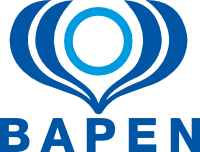Team Leaders
- Mr Michael Raraty, Consultant Surgeon.
Link 5C, Royal Liverpool University Hospital, Prescot Street, Liverpool, L7 8XP
Tel. 0151 706 3323, Fax. 0151 706 5828, email: Michael.Raraty@rlbuht.nhs.uk
Team Members
- Emma Jones (Enhanced Recovery Co-ordinator)
- Michael Raraty (Consultant Surgeon)
- Keiran Murphy (Charge Nurse)
- Jo Garry (Pancreatic specialist nurse)
- Jackie Martin (Matron), Pete Turner (Specialist Dietitian)
- Ben Davies (Lean practitioner)
- Helen Campbell (Pharmacist)
- Fran Ion (Specialist nurse in pain management)
- Peter Hampshire (Critical care consultant)
What was the problem you were trying to address?
The Enhanced Recovery Programme (ERP) is a set of protocols that are now well established in colorectal and other branches of surgery which are designed to standardise the quality of care and reduce the length of time to recovery after surgery. The principals have not previously been applied to major pancreatic surgery, however, and so our aim was to develop the first enhanced recovery programme specifically aimed at patients undergoing major pancreatic resectional surgery, a branch of surgery that traditionally carries a high rate of complications and mortality.
How did you create your project plan?
The Royal Liverpool and Broadgreen University Hospitals NHS Trust has an enhanced recovery steering group that was used to set up and oversee a subgroup to develop a specific clinical pathway for pancreatic surgery.
Everyone involved in the care of patients with pancreatic cancer contributed to the development of a new patient pathway, beginning with the involvement of physiotherapy, occupational therapy and dietetics in the pre-operative assessment clinic to pre-emptively identify potential discharge problems, and continuing with the involvement of ward staff, specialist nurses, pain team, nutrition team, pharmacy, surgeons and anaesthetists. We also looked at patient awareness and involvement in the care pathway and canvassed patient opinion on their expectations and what they would want from an enhanced recovery pathway.
We process mapped the current state of the patient’s journey and it became apparent that this was very fragmented and that a designated Pancreatic Enhanced Recovery Unit (PERU), dedicated to caring specifically for this group of patients was essential.
Key Actions
- Screening for malnutrition at preoperative clinic visit with MUST
- Treatment for high risk patients
- Development of the Pancreatic Enhanced Recovery Unit (PERU)
- Training of staff
- Avoidance of Nil by Mouth prior to surgery
- Allowing non-particulate fluids up to 2 hours before surgery
- Preoperative carbohydrate loading
- Early postoperative oral nutrition
- Postoperative screening with MUST
- Dietetic review for high risk patients
- Appropriate IV fluids to avoid sodium and water overload
- Epidural anaesthesia and analgesia
- Earlier use of prokinetics.
- Opening of the Pancreatic Enhanced Recovery Unit (PERU)
Main Outcomes
The PERU opened on 10th April 2012 and early results are encouraging.
- To date 7 patients have completed episodes following pancreatic resections with a median length of stay of 9 days (mean = 16 days).
- Four patients were discharged within 10 days.
This compares with a median stay of 18 days (mean = 24 days) for 193 patients operated on for pancreatic cancers in 2010/11 in our institution.
As yet it is too early to comment on morbidity/mortality rates.
How are you going to maintain the improvement?
The implementation of the enhanced recovery pathway has been a process of ongoing review and development depending on both staff and patient feedback.
Length of stay for patients on the enhanced recovery pathway is subject to monthly review and we plan to assess the working of the PERU after 6 months based on audit of outcome data and patient satisfaction questionnaires.
We anticipate that further changes to the enhanced recovery pathway may be required and will revise the protocols in line with audit data / feedback.
Tips for others planning similar projects
- Don’t be afraid to break with tradition
- Visit units with established pathways
- Educate the sceptics


